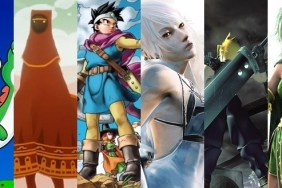"The 10 Most Influential Retro Games" is a feature series that will run daily for the next two weeks, between 12/3/12 to 12/14/12 on weekdays, with each day highlighting one of our ten picks in an unranked order. Follow our tagged page for Most Influential Retro Games to view the entire list. ~Ed. Nick
There aren't too many games that really tell you what you're in for from their title alone, at least not nowadays. Back in the early days of the Atari 2600, it was commonplace to have basically-named titles, like Video Olympics or Video Pinball. But the first time people fired it up, players figured out that it was very different from any other game they'd ever played.
Adventure was just that: an adventure. Players took control of a single massive pixel to explore a maze of a castle, filled with items, dragons, and hidden within the walls the Holy Grail. The goal was not only to find the Grail, but the key to the room it was in, the key to your home room, and to not be eaten by any of the three dragons roaming the premises (they were called dragons, but they looked more like ducks). It was the first time a game was truly expansive and visual at the same time, and that alone helps the game stand as an innovative force.
What made Adventure stand alone as an inspirational and influential game in the annals of history is for one name: Warren Robinett. In the days when programmers didn't get the credit they deserved, instead being known simply by their company, one programmer slipped in a bit of code that wasn't discovered until after the game made it out to the public. All he did was sneak in a single extra room, which could only be unlocked after a few specific items are grabbed and the "gray dot" is discovered. All that's in the extra room was the phrase, printed vertically:
That was it. Just a plea from a programmer to grab some attention for the game he created. And as a result of that, two major things started to happen: the biggest was the idea of hiding those little gems, those "Easter Eggs," in software, those little extras that launched a thousand web sites, a thousand memorable moments (remember the first time you found the hidden 1-Up in 1-1 of Super Mario Brothers?), and continues to thrill us all when we've thought we'd beaten any game into submission. Easter Eggs give players a reason to replay games we've played thousands of times before, thinking there's just a little more left in the tank for one more run-through.
And that's not the only legacy of Adventure. WIth that name Warren Robinett cemented the idea that, no matter the medium, artists and creators deserve credit for their projects. Around the time the game was readying for release, a group of programmers quit Atari and started a company of their own, creating new games for which they were given full credit; you might've heard of them. They founded the first third-party game software company and named it Activision.
Now how's that for an adventure?







